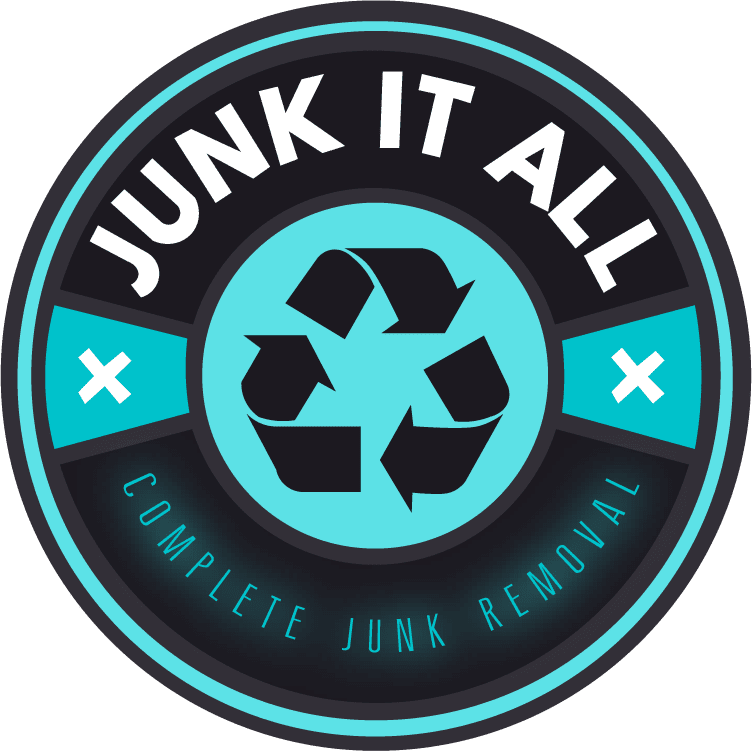
Good to Know

Can I leave furniture on the curb?
Many cities do now allow residents to put large or heavy items on the curb for the city waste management to dispose of. The best thing you can do is to contact your local curbside recycling and garbage collection services to find out what they accept. Don't leave your furniture on the curb just because you think it might be okay. You could be made to pay a fine if you do so.
Can you recycle wood furniture?
Depending on what type of wood is used, yes. If the wood is untreated, they can be recycled or composted. Most furniture is made of treated wood, which means it has been pressure treated, stained, painted or varnished. This type of wood, along with particleboard and chipboard, is very difficult to recycle due to the chemicals in the varnishes, paints, adhesives, and other wood treatment products. The best thing to do with old treated wood furniture is to find a way to reuse it.
What is considered construction debris?
Construction and Demolition (C&D) debris is a type of waste that is not included in municipal solid waste (MSW). Materials included in the C&D debris generation estimates are steel, wood products, drywall and plaster, brick and clay tile, asphalt shingles, concrete, and asphalt concrete. You may need to call a professional junk hauling company to get rid of your construction debris materials as city waste management may not take most construction materials.
Can mattresses be recycled?
If you bring your old mattress to a recycling facility that accepts mattresses, it can be broken down and the materials can be used again. The metal springs and coils can be melted down and made into new items. The foam can be shredded and used in carpet padding, moving pads, and other similar items. Cotton and other fibers can be used in filters, insulation, and burned for fuel.
What kind of chemicals are in TVs?
As more people are becoming aware, televisions and other electronics often contain hazardous innards. In addition to the lead problem with CRT TVs, chemicals like hormone disruptors polyvinyl chloride and brominated flame retardants, neurotoxic mercury, and more can be found in flat-screen and CRT TVs alike.
Can you take a large TV to the dump?
You should try to avoid tossing your old TV into a landfill. Although it's tempting, taking an old TV for curbside trash pickup isn't an ideal option. Many trash companies refuse large electronics like TVs. And, even if they do accept them, TVs tossed into landfills pose a threat to the environment.
What are the benefits of removing and disposing of construction debris and other materials?
There are many environmental benefits to properly disposing of construction debris Proper waste removal helps improve air and water quality as well as reduces greenhouse gas emissions. It helps in minimizing the extraction of resources along with reducing pollution and energy consumption which is associated with manufacturing new materials.
What is e-waste and why is it a problem?
E-waste contains a laundry list of chemicals that are harmful to people and the environment, like: mercury, lead, beryllium, brominated flame retardants, and cadmium, i.e. stuff that sounds as bad as it is. When electronics are mishandled during disposal, these chemicals end up in our soil, water, and air
Why should I care about e-waste?
Many electronic devices contain hazardous chemicals. If they aren't disposed of safely, those chemicals can pose a safety hazard to people, animals and the environment. In addition to contaminating soil, hazardous wastes can pollute the air and leach into water source.
What are 5 major concerns with e-waste?
Electronic waste contains toxic components that are dangerous to human health, such as mercury, lead, cadmium, polybrominated flame retardants, barium and lithium. The negative health effects of these toxins on humans include brain, heart, liver, kidney and skeletal system damage.
Questions?
Thank you for your interest in our services!
We'd love to hear from you.
Get in Touch
Give us a call
(352) 251-3432Send us an email
[email protected]Other website
www.junkitallservices.com/